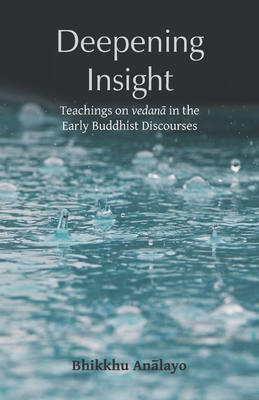Deepening Insight: Teachings on vedanā in the Early Buddhist Discourses

Deepening Insight: Teachings on vedanā in the Early Buddhist Discourses
Endorsements In spring 1990 S.N. Goenka initiated an international seminar named The Importance of Vedanā and Sampajañña. It had the purpose to disseminate the prominence of sensations (vedanā) as a core object of meditation to recognize the intrinsic nature of change and impermanence. Venerable Bhikkhu Anālayo now provides a thorough, comprehensive and well selected collection on vedanā as maintained in the original early Pāli Canon. Along with the comparison to the Chinese Āgama, otherwise hardly available, this collection if adapted and applied to practice
PRP: 77.11 Lei
Acesta este Prețul Recomandat de Producător. Prețul de vânzare al produsului este afișat mai jos.
69.40Lei
69.40Lei
77.11 LeiLivrare in 2-4 saptamani
Descrierea produsului
Endorsements In spring 1990 S.N. Goenka initiated an international seminar named The Importance of Vedanā and Sampajañña. It had the purpose to disseminate the prominence of sensations (vedanā) as a core object of meditation to recognize the intrinsic nature of change and impermanence. Venerable Bhikkhu Anālayo now provides a thorough, comprehensive and well selected collection on vedanā as maintained in the original early Pāli Canon. Along with the comparison to the Chinese Āgama, otherwise hardly available, this collection if adapted and applied to practice
Detaliile produsului











